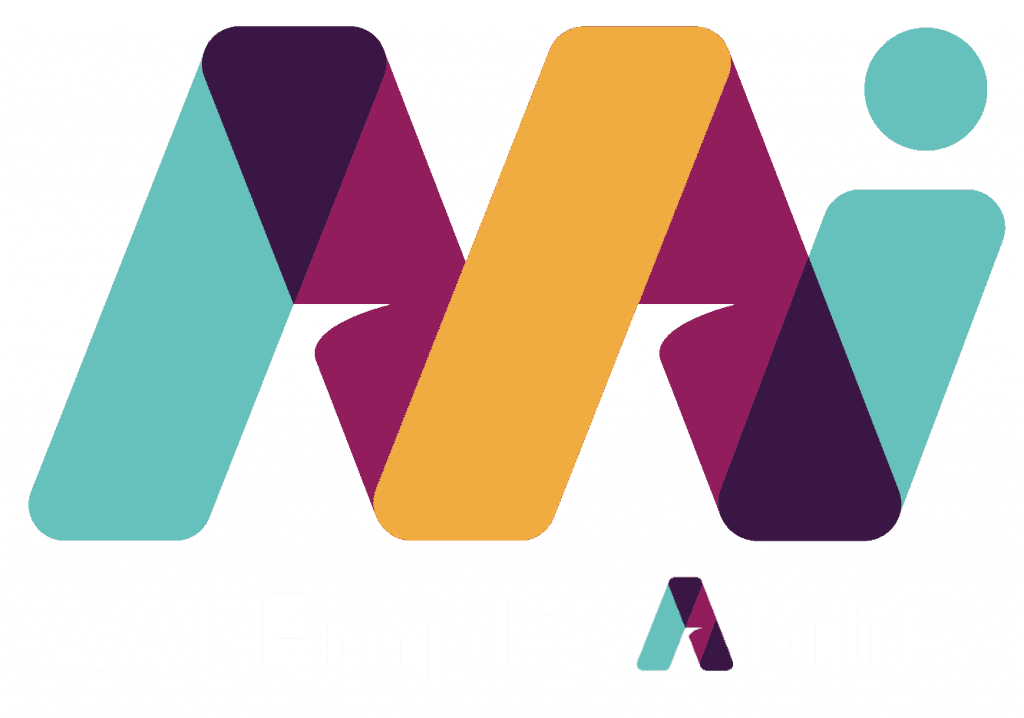Emmanuel Dossou-Yovo, Chairman & CEO of The Global Forum On Cities, Things Growth interviewed Nick Murray, Marketing & Partnership Lead of AAI EmployAbility in March 2020.
The original long-form, unabridged version of the interview can be found HERE.
About: The Global Forum On Cities is the global business and policy forum on cities organised by Things Growth. The platform partners with 100+ global leading cities, technology and innovation organisations, corporates, public entities, start-ups, incubators and industry experts.
The Forum is a series of global events as well as a platform for innovation, programmes and projects for city stakeholders.
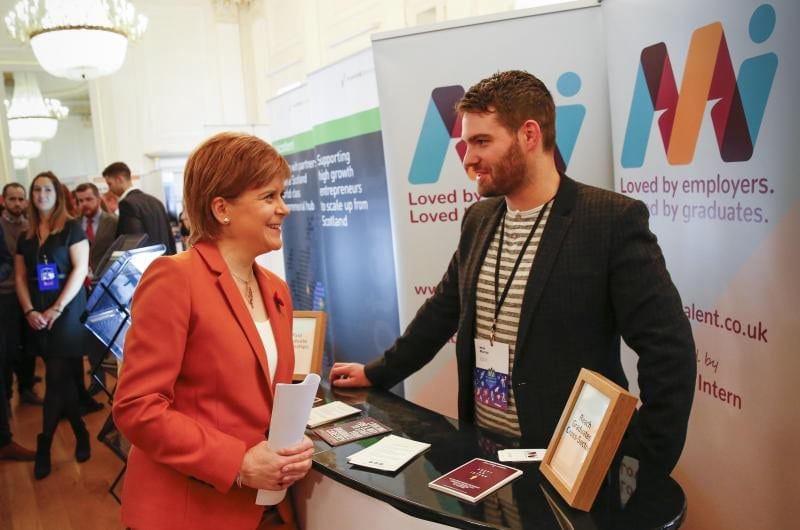
Emmanuel: Tell us more about the organisation.
Nick: I’m the Marketing and Partnerships Lead at a social enterprise called AAI EmployAbility and essentially, we are the good guys of recruitment.
The company started off focusing on changing the culture and approach to unpaid graduate internships 10 years ago. Over time, we’ve encountered more employment injustices around diversity, inclusion and access to opportunity, and we work with businesses across the UK to help them to access people from all walks of life looking for a foot in the door and a real opportunity.
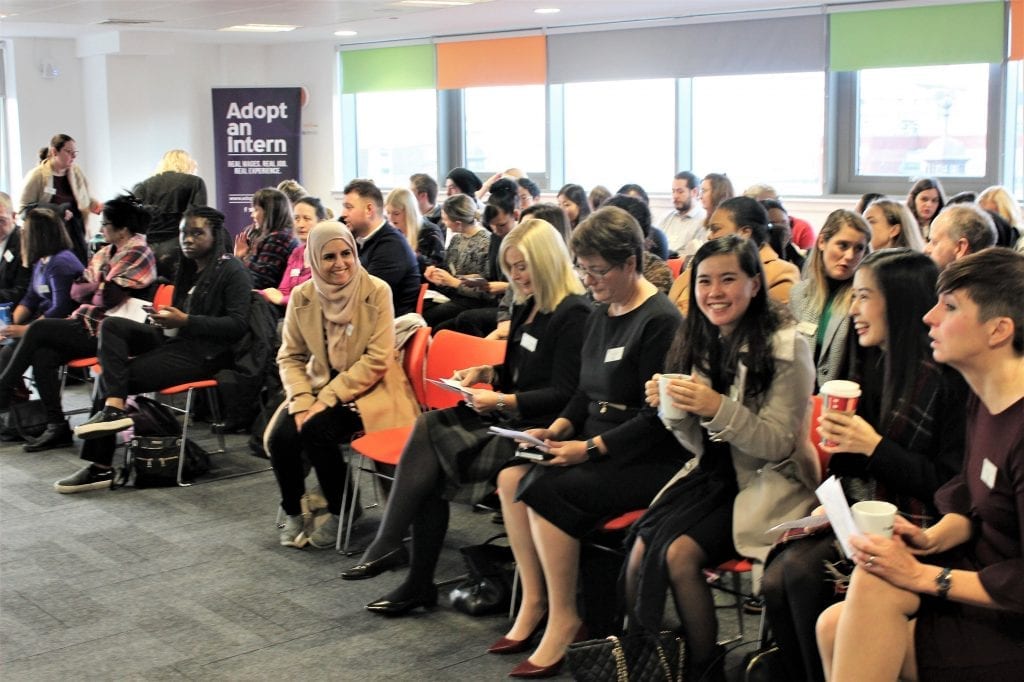
Emmanuel: What do you do within the organisation?
Nick: In small teams, you tend to wear a lot of hats. My official role is in marketing and outreach. I do a lot of engagement with our jobseeker audience, but also working with startups and social enterprises and the social entrepreneurial ecosystem here in Scotland, as well as doing a bit of project management.
This year we focused a lot on supporting mindset, mental health and wellbeing for people that have been hit by the pandemic and the economic circumstances that they might be facing.
Emmanuel: What brought you to, personally, to this mission?
Nick: I’ve got a bit of an interesting story. I’ve had a couple of different careers. I suppose my first calling was that I was a sponsored skateboarder. When I left high school, the Careers Adviser said, ‘Right Nick, you’re doing well at History, so what university are you going to?’. That was the extent of the careers advice that we had back then.
I did a four-year History degree, which I didn’t enjoy. I couldn’t grow my beard long enough to be taken seriously as a Historian, but I could grow it long enough to be taken seriously working in coffee. I did that for ten years and that showed me how you can sell the same product to lots of different customer demographics via branding, atmosphere and service interactions.
That got me interested in marketing and the perception of brands and value. I ended up going back and doing a one-year marketing post-graduate before getting an internship through the company that I ended up working for. I met the CEO, Joy Lewis, in London and we hit it off and it all ties into this idea that I love – that opportunities are taken, not given.
I’ve tried to take as many opportunities as I can and now I suppose what motivates me is just being able to help people. I think this year, more than ever, people have realised that we’re here for a good time, not a long time, and anything they can do to contribute positively to the world is a massive bonus. So, that’s my mission – to help people and leave a positive legacy.
“I think this year, more than ever, people have realised that we’re here for a good time, not a long time, and anything they can do to contribute positively to the world is a massive bonus.” – Nick Murray
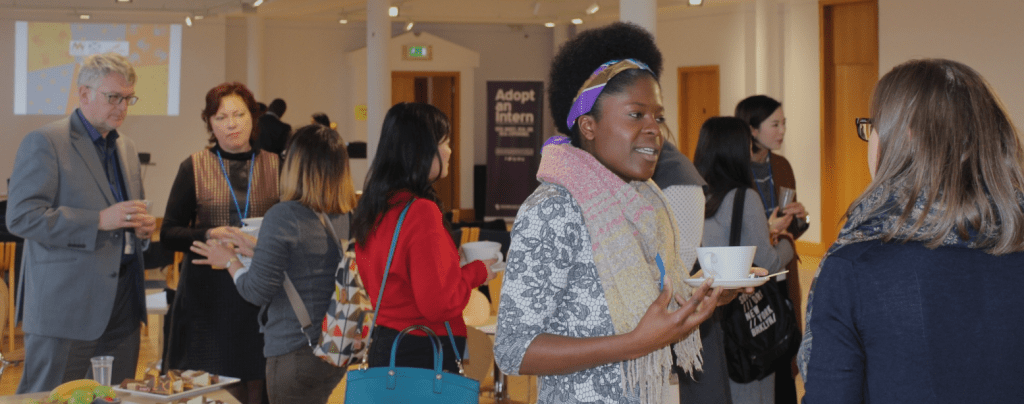
Emmanuel: What made you feel like now is the right time to start this specific journey?
Nick : I saw myself and a lot of people who were trapped in hospitality and working long shifts. You don’t have time to look at the job market or to train and explore your interests and other avenues because you’re exhausted.
I saw lots of people like myself who maybe felt like they missed the boat or that they hadn’t been given the right opportunities after school or university to get their foot in the door. I saw what the organisation I work for now, AAI, were doing with internships and what the right opportunity could do for someone like myself, age 30 at the time, to make up for a lost time to get into a job in three or six months.
Taking on a whole load of diverse responsibilities proved you can jump up a few steps in the career ladder while you’re at it.
Emmanuel: In terms of the sector, you’re in. How would you define it?
Nick: Well, I like to think we’re in the business of opportunity, but I think most people would say that it’s recruitment, and the perception of that industry has not always been great. There’s a lot of people who have had bad experiences in recruitment. There’s a lot of employers who don’t like to use recruitment agencies.
Emmanuel: What do think could be one of the barriers to that?
Nick: A lot of businesses don’t want to use a third party to do their recruitment because they think it’s expensive. You give over a lot of control and we all know lots of business leaders who don’t like to give up control.
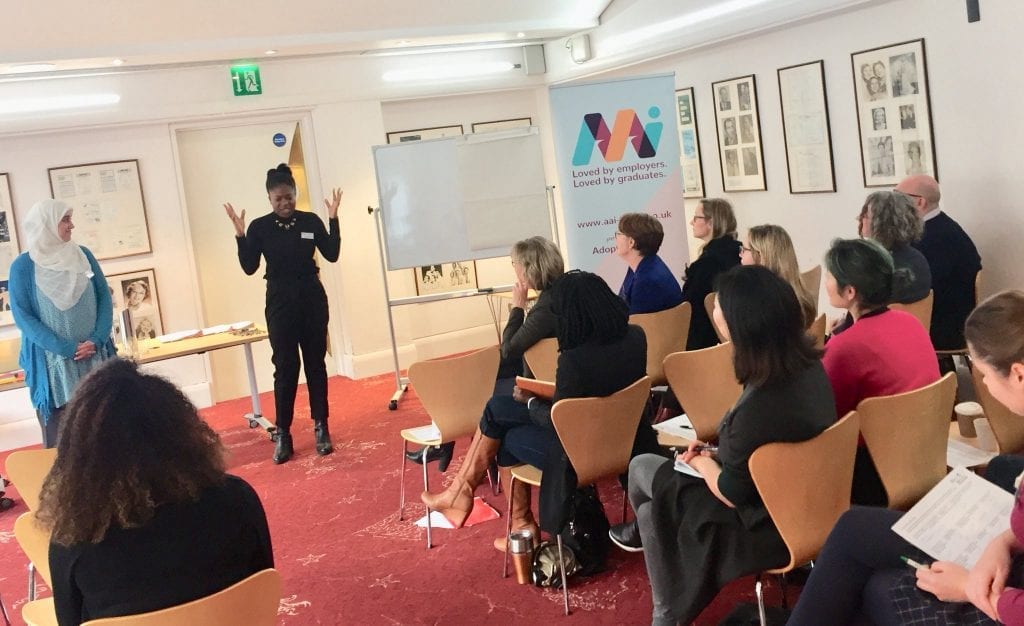
Secondly, with advancement in technology, networks and communities, a lot of people think that they can promote a job to their network and reach some interesting people themselves.
The downfall of that is this idea of a diverse group of talent and the diversity of thought that you’re not reaching. So, what we say to employers is if you promote to your own network, then chances are you’re just going to find someone just like you and we know now from research from the last 10 years that diverse teams, whether that’s gender, race, background, education etc., perform better.
Emmanuel: What do you think could bring a significant change?
Nick: I think a significant change could come from employers learning a bit more about diversity and inclusion and the benefits of what a truly diverse team could bring. One of the things that I’m personally fascinated with is the idea that we’re all wired differently, and we’ve all got natural, inherent gifts to offer the world. A good employer will be able to recognise someone’s strengths and weaknesses and pool those talents, gifts, that common sense and ingenuity of somebody.
The sooner that businesses can stop being so prescriptive about the kind of person they think would work in their team and start embracing this idea of the diversity of thought, the more interesting businesses we’re going to have and teams that complement each other.
I think it’s a very interesting time for this discussion, given what happened with the Black Lives Matter movement resurgence and people urgently looking at the businesses and thinking about what inclusion and accessibility look like, how they’re representing their brand to the rest of the world. Whether that’s through their website or their job adverts or how their team looks like online.
“One of the things that I’m personally fascinated with is the idea that we’re all wired differently, and we’ve all got natural, inherent gifts to offer the world.” – Nick Murray
Emmanuel: What do you think is a solution to enable more organisations in terms of providing them access to recruitment services?
Nick : 2020 has been huge for conversations around diversity and inclusion and reaching marginalised or underrepresented groups, and there’s a huge piece of work to be done around that with every company.
In June, when the Black Lives Matter campaign resurfaced, every company in the world could very quickly look at themselves and think, are we representative of our customer community? Are we doing everything to showcase to the world that we are inclusive? And are we doing enough in terms of reaching and attracting the right talent to build a diverse workforce? So, it’s a very interesting time in terms of employment.
There’s lots of data and research around diverse teams performing better. It’s not just the moral thing to do. I think a lot of people are scared to take those first steps to look at what good looks like.
A lot of the work that we’ve been doing at AAI – is holding workshops with diverse professionals and HR and business leaders to talk about the barriers to employment, employer branding and perception. What does your company look like online? What are the touchpoints for talent? If they don’t see themselves represented on the website, is that going to deter them from applying for a job?
It’s not just about the perception of a company, it’s also about your culture. It’s all very well having a great website that looks inclusive but if your team isn’t with you on that journey, then as soon as somebody comes in, it’s going to be a very different experience. I think with a lot of things this year, it’s a time for listening, for learning and for making small adjustments so we can all just do a bit better.
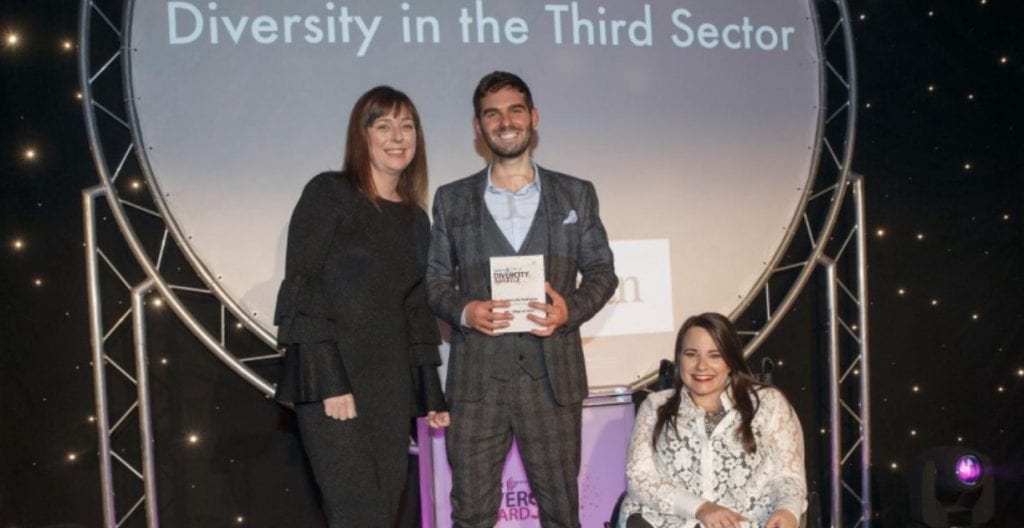
Emmanuel: Are you identifying patterns in terms of the companies which are practising more this type of recruitment. Where do you see the traction?
Nick: If you look at the startups, and SMEs of the world, you know those teams are much more close-knit and certainly, start-ups need a team that can stay. If your workplace culture is terrible, somebody is not going to stay. I think there’s a real appetite with those companies to get things right from the start and certainly in growing tech companies as they already know the benefit of casting a wider net for talent.
Emmanuel: There could also be a generational dimension to it.
Nick: With big companies, it almost always comes down to an internal (diversity) champion. Who’s on the inside pushing it? Are they pushing up to the Senior Management or is there genuine, authentic buy-in from that Chief Executive level? That’s how the real change permeates down to the rest of the company. It’s essential for business leaders to do this and not just leave it to HR.
Emmanuel: The public debate has been mostly focused on diversity while inclusion and retention have received less attention. What is it that you can share with us specifically in terms of what your organisation is doing at the moment or what they or we could do as a society to further this aspect?
Nick: First of all, we should break down those two terms because they’re in danger of becoming buzzwords. ‘Diversity’ is who people are, their race, gender, identity etc., and ‘inclusion’ is ensuring that everyone has a seat at the table and has an opportunity to do their best work and access opportunities.
I think we all just want to be seen, don’t we? We want to be valued, heard, recognised and we want opportunities to be part of something. I think it’s just taking a very human-centred approach to business and not losing touch of that.
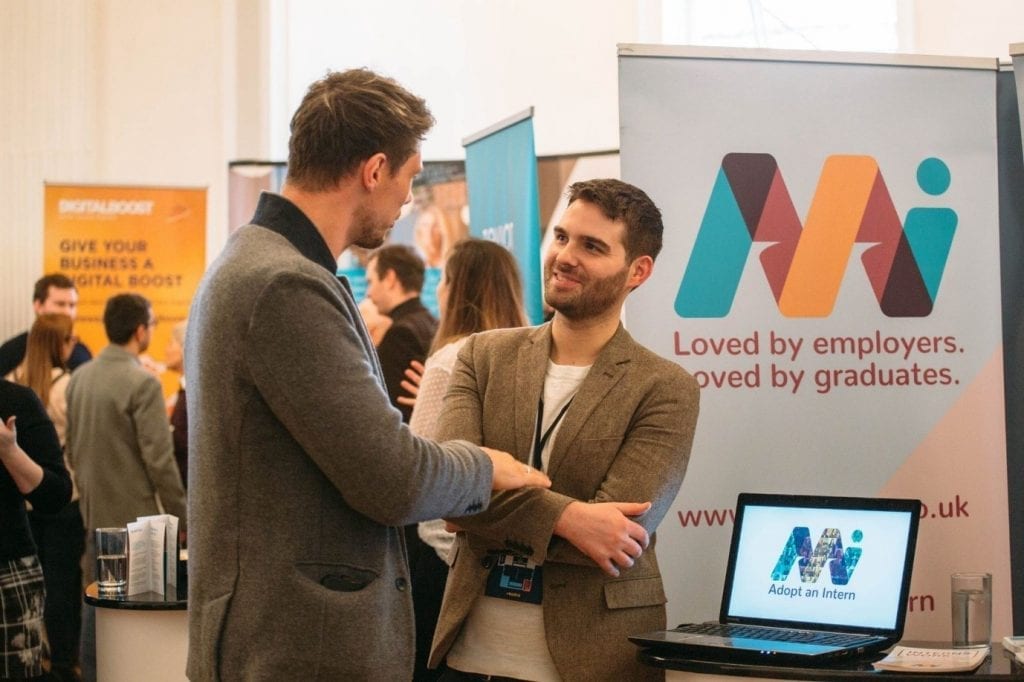
Emmanuel: What do you think of people say we’re not really embracing diversity because the people we need to hire need a certain type of skills and training and ‘diverse’ candidates don’t always come with those skills. Do you think this is valid?
Nick: I suppose if you’re a startup or a small company, primarily, you just want someone who can do the job. You’re not thinking about diversity, or thinking about the cost. You’re thinking: “How quickly can we hire? How quickly can we get this job done?” It’s the bigger companies that have got huge hiring initiatives that are looking at this more seriously.
One of the big barriers that a lot of job-seekers from different backgrounds have is how companies in the UK and across Europe look at educational qualifications from other countries.
We are working with companies to break down these barriers and focus very much on transferable skills and competency.
Studies show that if a woman can do eight out of ten job requirements, they won’t apply because they focus on those two. If a man can do four of the ten he’ll apply anyway. How are we overcoming this? There should be a separation of requirements in a job advert between ‘essential’ and ‘desirable’ to not put people off.
This is why working with an employment partner that does this work every single day ensures that your company gets the right support in finding people who are right for the job.
Emmanuel: Thank you so much. This was really interesting and insightful.


